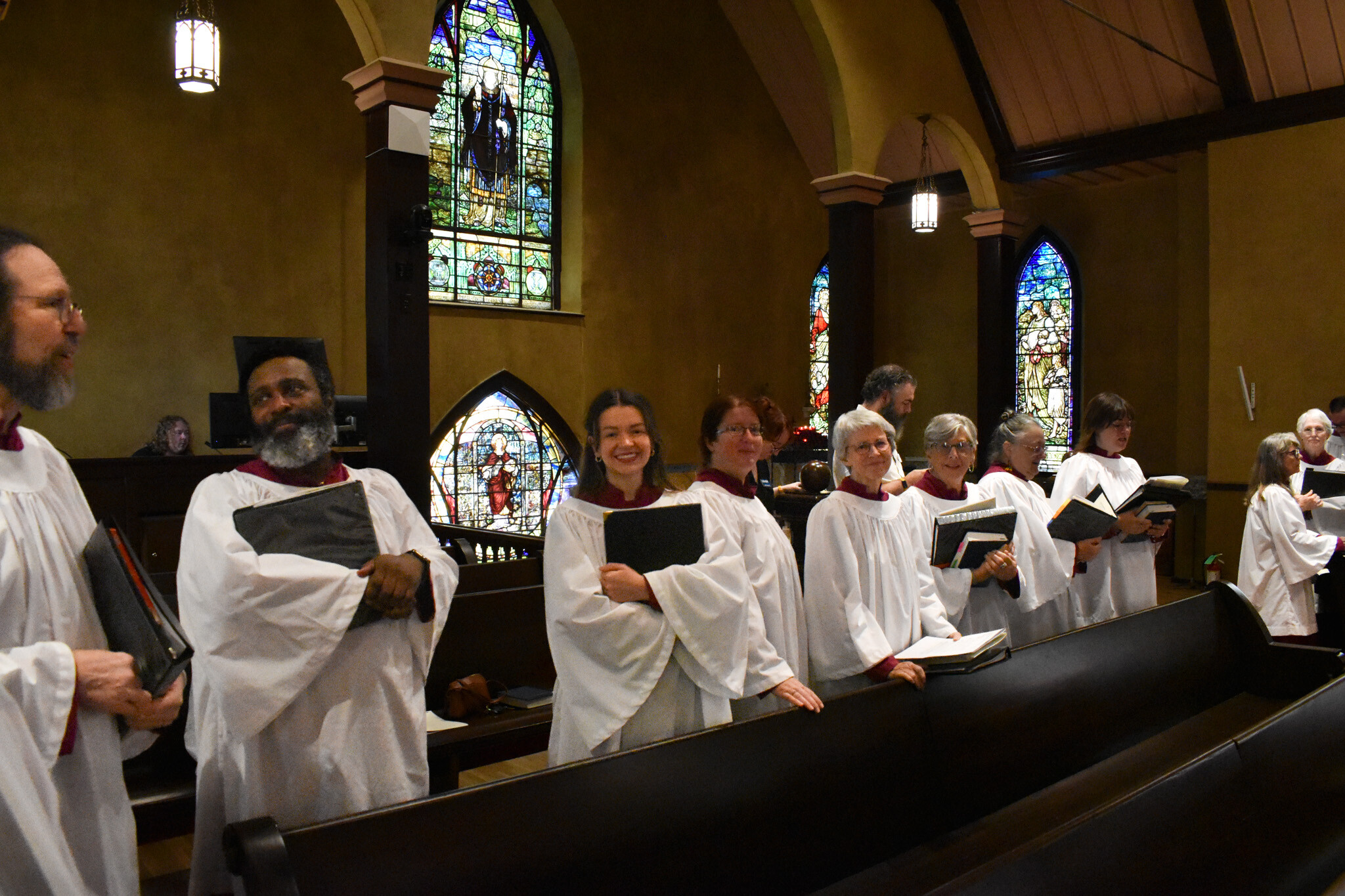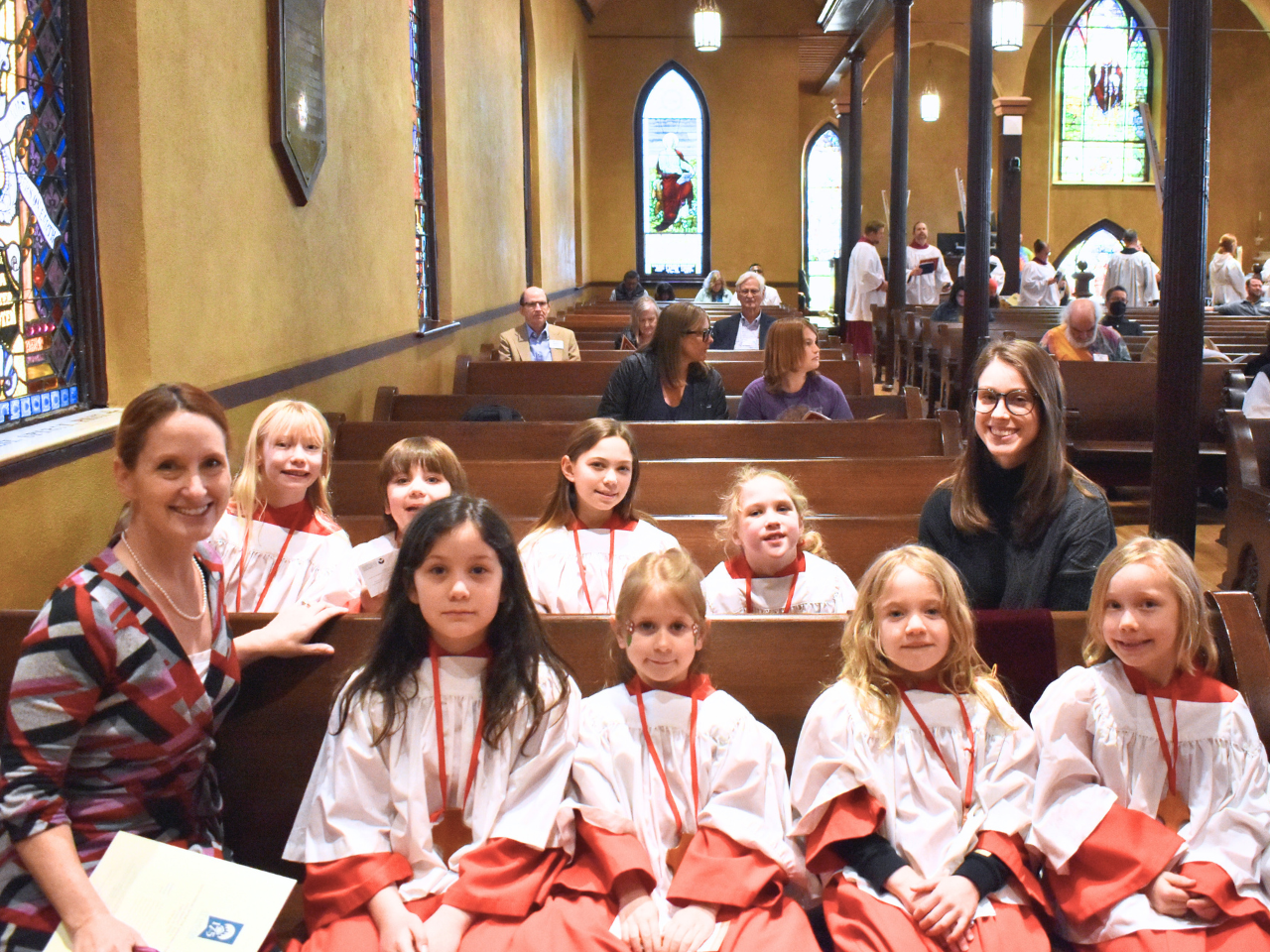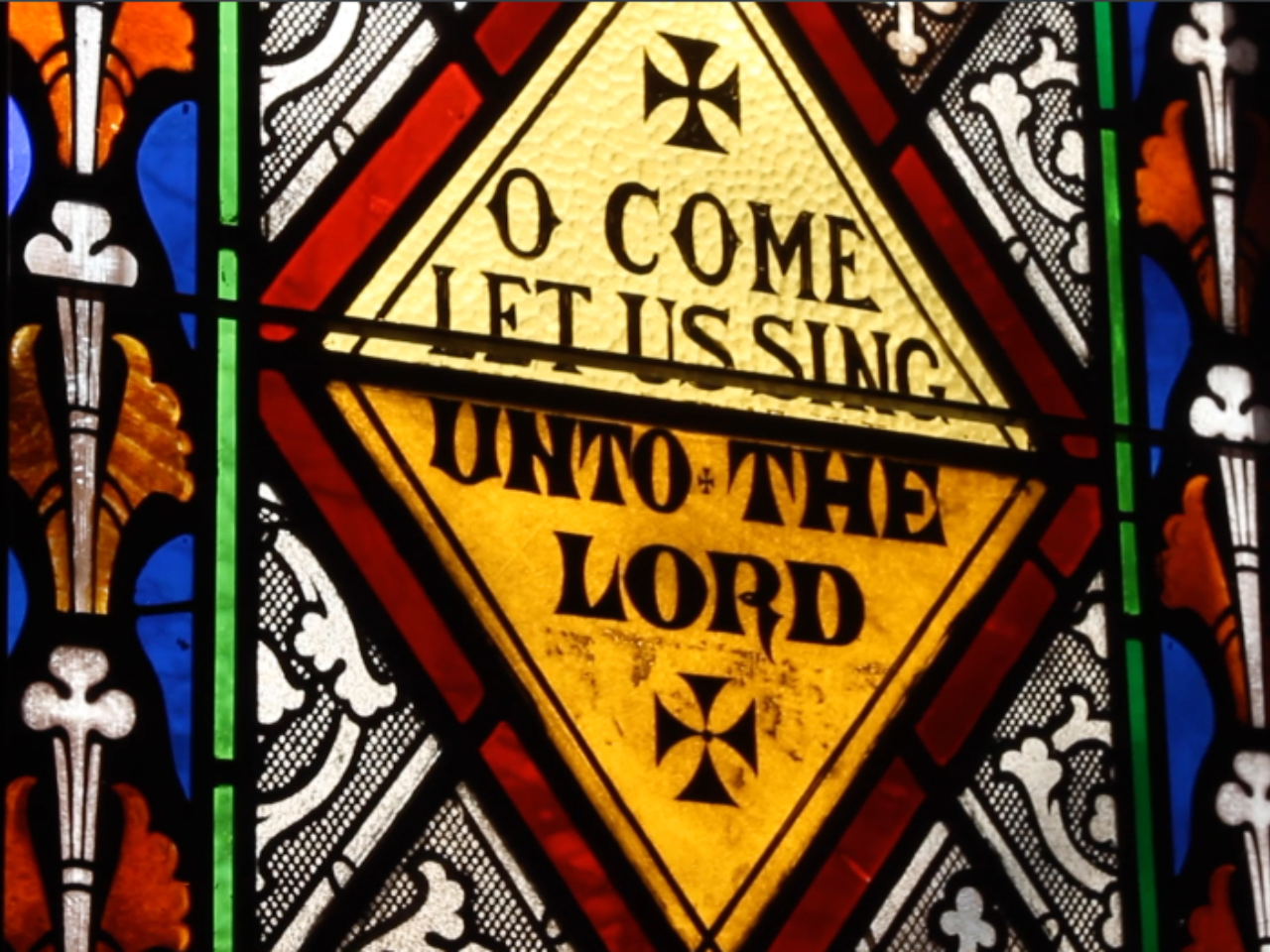
The Magnificat (Song of Mary) is logically associated with Advent and the Visitation of the Blessed Virgin on account of its place in the narrative of Luke’s Gospel. Nevertheless its message is so central to the Christian understanding of God’s work in the world that it is traditionally sung daily at Evening Prayer, and occasionally it is chosen for use at the Eucharist.
This Sunday we find Our Lord, in the selfsame Gospel, teaching his followers the virtue of humility: those who exalt themselves will be humbled, he says, and those who humble themselves will be exalted. Precisely this message lies at the heart of the Magnificat:
He has cast down the mighty from their thrones,
and has lifted up the lowly.
He has filled the hungry with good things,
and the rich he has sent away empty.
Because of its place at daily Evening Prayer, the Magnificat has been set to music countless times; because music at the Daily Office (like the Gloria at the Eucharist, which was originally used at Morning Prayer instead) does not accompany action, many settings of the Magnificat run to some length. For use at the Offertory of the Eucharist, that is, accompanying the liturgical action of collecting and preparing the gifts of bread, wine, and money, we have chosen a brief, brisk setting by Ralph Vaughan Williams, the leading English composer of the early 20th century. Its constantly shifting musical meter accommodates the unmetered text in a way reminiscent of chant, and the two or three main musical ideas in turn fit the shifting sentiments of the text.
As is often the case, Jesus takes an ordinary scene as the setting for a teaching: in this case a meal. After warning his listeners (including us, of course!) not to be presumptuous guests, he teaches that they (we) should not, when acting in turn as hosts, do so in order to seek reciprocation, but should rather exhibit true generosity by inviting those who would not be able to repay the favor. Jesus says
This saying is cast in terms of the host’s receiving an eternal reward – but it should also put us in mind of the banquet at which Christ hosts us who could not possibly return his infinite grace, and remind us that generosity and gratitude are equally and mutually to be cultivated.
This sense of gratitude for living bread, for bounty, for belonging, found in the Holy Communion is the theme of our Communion hymn, ‘All who hunger gather gladly’ [761 in Wonder, Love, and Praise]. The work of United Church of Canada minister Sylvia Dunstan, it uses images found throughout Scripture, ending with a refrain that refers to the classic Communion verse, Psalm 34.8 (‘Taste and see that the Lord is good’, in the Prayer Book translation). ’Holy Manna’ is a classic early-19th-century American folk hymn-tune – pentatonic (that is, using the scale that can be formed by playing the black notes of the piano keyboard, common to many folk musics around the world), rugged, repetitive, infectious – and while the notes to WLP indicate that the hymnal committee chose the tune, but perhaps Dunstan had it in mind, since ‘holy manna’ appears in the first stanza and the text of course fits the tune’s meter.
These themes are also found at 9:00 in the Offertory hymn, ‘As we gather at your table’ [763]: gathering for and being nourished by the sacred banquet, we pray to be sent out to serve, inviting others (particularly the ‘last and least’) to join, and in so doing joining with ‘saints and angels’. We have set this hymn by Episcopal priest-poet Carl Daw to a tune similar to ‘Holy Manna’, namely ‘Pleading Savior’.




Login To Leave Comment